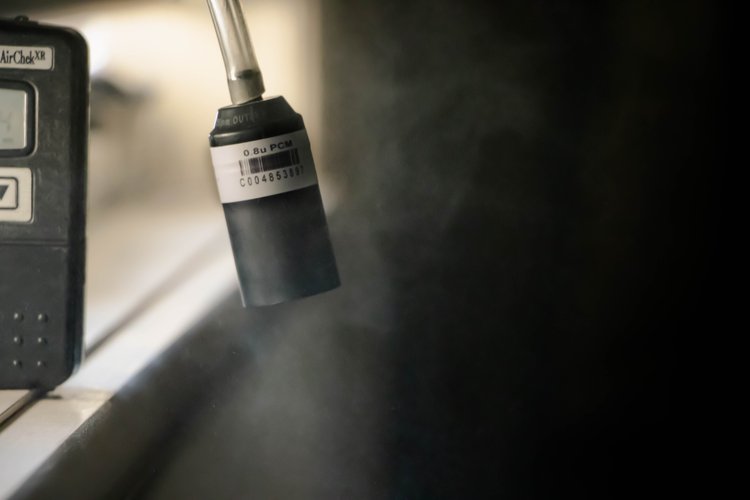Asbestos is a dangerous material composed of silicate fibres that can lead to significant health risks when individuals are exposed for too long. This health risk has important implications for the building industry, resulting in the need for asbestos air testing as part of a comprehensive asbestos inspection protocol.
The Australian Government banned asbestos on the 31st of December, 2003. This means any building built before 2004 may have asbestos-containing materials (ACMs). Old properties must undergo careful asbestos inspection, asbestos air testing and present updated registers to ensure safety.
Asbestos air testing is a critical step assessors perform on properties with ACMs.
Risk Assessment
Asbestos causes severe health damage when inhaled. The tiny, friable fibres are typically needle-shaped and have been shown to lodge in the lungs, often causing lung cancer, asbestosis, and mesothelioma.
Asbestos Air Testing provides valuable information about the level of asbestos fibres in the air and the potential associated health risk. The analysis of the air samples offers useful data that can help the assessor make informed management and abatement strategy decisions.
Maintain Compliance
Australian laws mandate all commercial properties built before the 2003 ban to conduct regular surveys and testing to ensure safety from ACMs. Asbestos air testing is no exception.
By conducting air testing on your property, you can remain compliant with asbestos regulations and show a commitment to environmental and personal safety.
Ongoing Asbestos Air Testing Control Measures
It is easier to feel more confident once you’ve performed all the necessary steps to remove and monitor asbestos-containing materials in your property. Further asbestos air testing may be required throughout your building project. Our consultants can advise you on the degree of asbestos air testing needed for compliance and safety.
Peace of Mind
Occupying an old building constructed before 2004 can be daunting, especially knowing there could be ACMs hidden in particular areas. Even after removal, fibres could still be left floating in the air, which are dangerous when inhaled.
Regular asbestos air testing assures property owners, workers, and occupants that safety measures are implemented well.
Don’t Wait Until It’s Too Late
Asbestos air testing and monitoring are essential when assessing if your property or building site is free of airborne asbestos fibres. A preventative and cautious approach is required to avoid health and legal consequences in the future. Global Asbestos Audits can help you take control of your air quality and keep asbestos out of any environment while providing a comprehensive register and actionable recommendations.

